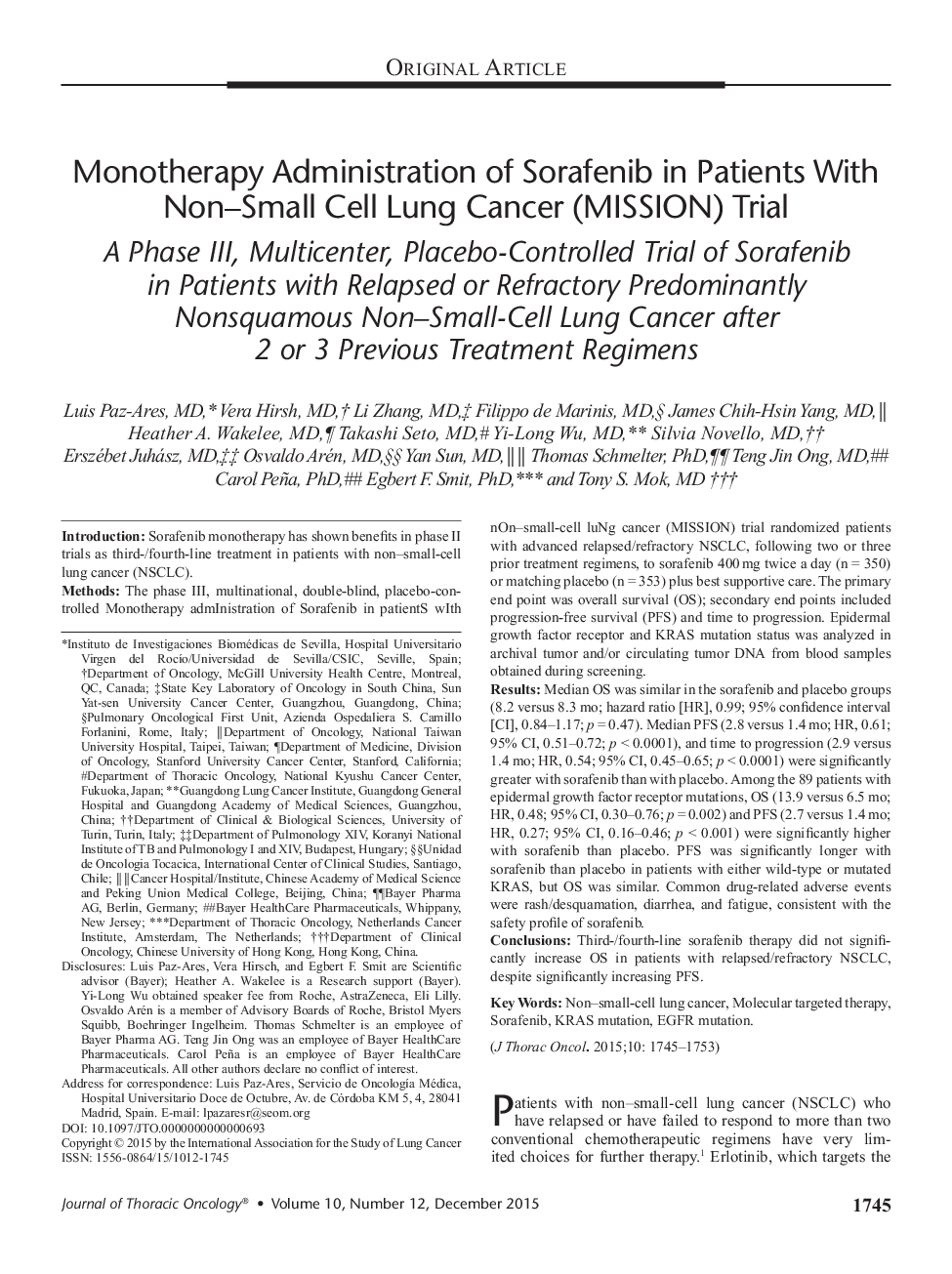| کد مقاله | کد نشریه | سال انتشار | مقاله انگلیسی | نسخه تمام متن |
|---|---|---|---|---|
| 3989252 | 1601652 | 2015 | 9 صفحه PDF | دانلود رایگان |

IntroductionSorafenib monotherapy has shown benefits in phase II trials as third-/fourth-line treatment in patients with non-small-cell lung cancer (NSCLC).MethodsThe phase III, multinational, double-blind, placebo-controlled Monotherapy admInistration of Sorafenib in patientS wIth nOn-small-cell luNg cancer (MISSION) trial randomized patients with advanced relapsed/refractory NSCLC, following two or three prior treatment regimens, to sorafenib 400 mg twice a day (n = 350) or matching placebo (n = 353) plus best supportive care. The primary end point was overall survival (OS); secondary end points included progression-free survival (PFS) and time to progression. Epidermal growth factor receptor and KRAS mutation status was analyzed in archival tumor and/or circulating tumor DNA from blood samples obtained during screening.ResultsMedian OS was similar in the sorafenib and placebo groups (8.2 versus 8.3 mo; hazard ratio [HR], 0.99; 95% confidence interval [CI], 0.84–1.17; p = 0.47). Median PFS (2.8 versus 1.4 mo; HR, 0.61; 95% CI, 0.51–0.72; p < 0.0001), and time to progression (2.9 versus 1.4 mo; HR, 0.54; 95% CI, 0.45–0.65; p < 0.0001) were significantly greater with sorafenib than with placebo. Among the 89 patients with epidermal growth factor receptor mutations, OS (13.9 versus 6.5 mo; HR, 0.48; 95% CI, 0.30–0.76; p = 0.002) and PFS (2.7 versus 1.4 mo; HR, 0.27; 95% CI, 0.16–0.46; p < 0.001) were significantly higher with sorafenib than placebo. PFS was significantly longer with sorafenib than placebo in patients with either wild-type or mutated KRAS, but OS was similar. Common drug-related adverse events were rash/desquamation, diarrhea, and fatigue, consistent with the safety profile of sorafenib.ConclusionsThird-/fourth-line sorafenib therapy did not significantly increase OS in patients with relapsed/refractory NSCLC, despite significantly increasing PFS.
Journal: Journal of Thoracic Oncology - Volume 10, Issue 12, December 2015, Pages 1745–1753